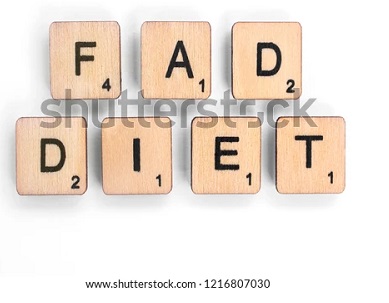
Fad diets, friend or foe?
Society’s current obsession with weight loss is driven by health education, social media and peer influences. Most people turn to diets that will help them lose weight fast and improve their appearance or body image.
While these fad diets may help you shed some weight quickly, they lack robust scientific evidence. As more people turn to fast weight loss methods, more fad diets emerge. Are they effective?
Advertisement
Do they offer only weight loss?
Are they friends or foes? One thing that is seen clearly is that these diets mostly do not stand the test of time and fade away as the years pass because of their rigid rules and limits.
Identifying fad diet
To identify a fad diet, the trick is in its promotion. The following questions should be considered. Does the diet:
• Promise fast weight loss of more than 1kg of body fat a week?
• Suggest that certain foods or ingredients ‘burn’ fat?
• Promote the avoidance or severe limitation of a whole food group (e.g., carbohydrates)?
• Suggest substitution of foods or food groups with expensive doses of supplements, expensive ingredients or special products?
• Promote eating one type of food or avoiding all cooked foods (raw food diet)?
• Recommend eating foods only in particular combinations?
• Focus on appearance?
If you answered yes to more than one of these questions, there is a high possibility of the diet being a fad diet.
Pros: Fad diets
Some benefits associated with fad diets are rapid weight loss, appetite suppression and increased satiety in the short term.
Low-carbohydrate diets have an enormous potential for eliminating a larger proportion of abdominal fat. The fad diet regimes proposed in many detox diets often consist of lots of fruits and vegetables which supply vitamins, minerals and antioxidants.
A person who loses weight first reduces the risks linked with obesity and second feels lighter, healthier and with increased self-confidence.
Cons: Fad diets
On the other hand, many of the benefits of these diets are often unrealistic, unsustainable and may come with some health complications. In losing weight rapidly, you may be losing water and muscle mass, not fat tissue.
High protein diets have been linked with a greater production of some waste products which put extra pressure on the kidneys. Individuals who are on low protein/low fat diets are at an increased risk of deficiency in minerals such as calcium and zinc.
If you are on a very low-calorie diet, then take note of the nearest health centre because your blood sugars may go extremely low and you may need medical supervision.
People on strict diets for a lengthy period often have low self-esteem and may suffer from some eating disorders, as well as depression.
To achieve and maintain one’s goal for weight loss, combine a variety of healthy foods in reasonable proportions with regular exercise.
A healthy diet includes fruits and vegetables, whole grains, low-fat dairy products, lean protein, nuts and seeds. To ensure adequate intake of nutrients to nourish the body, the diet plan should include all the food groups.
The eating pattern on a weight loss programme should also be appealing and tasty, otherwise it will be difficult to maintain it in the long term.
Conclusion
Fad diets promise fast weight loss, but they are not sustainable in the long term and have no strong scientific basis. The best way to lose weight is make healthier choices, include variety in meals and exercise. Weight loss should be done in a healthy way. Consult a registered dietitian or nutritionist to help you achieve your weight loss goal and enjoy life.
The writers are with the Department of Dietetics, School of Biomedical and Allied Health Sciences, College of Health Sciences, University of Ghana.
Writers’ E-mails: [email protected] & [email protected]



